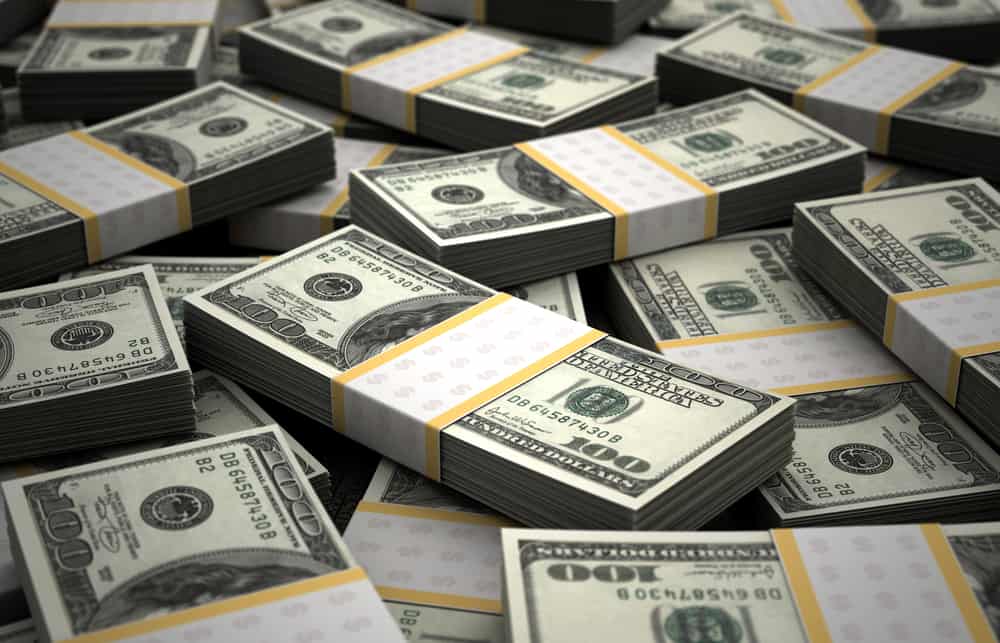Is There Any Chance of the U.S. Dollar Collapsing?

Author: Michael Stern
Last Updated: 17 September 2020
To encourage lending and investment, the U.S. Central Bank began buying long-term securities from the open market. The immediate impact is a lowering of interest rates and adds new money into a beleaguered economy. As a result of quantitative easing, many worried investors began asking, “Will this move lead to a dollar collapse?” On the surface, it may appear plausible, but unlikely.

What Causes a Currency to Collapse?
Since 1900, many countries, including Argentina, Iceland, Germany, and Zimbabwe, to name a few, have experienced a collapse of their currency.
The root cause of the collapse of any currency is a lack of faith in its usefulness as an effective store of value or medium of exchange. Once those who use the currency stop believing in its usefulness, the currency is on shaky ground. This phenomenon can be brought about as a result of “pie in the sky” valuations, low growth, and inflation.
The Inherent Strengths of the United States Dollar
In 1944, delegates from 44 countries met in Breton Woods. Although the system agreed at Breton Woods was subsequently dissolved, two important organizations that were created simultaneously remain as pillars for the exchange of international monies, the IMF (International Monetary Fund) and the World Bank.
Although the original agreement has long been dissolved, many central banks rely on the dollar’s strength to back-up their local currencies. Due to the dollar’s status as a reserve currency, it is seen as more legitimate by domestic users and currency traders. The U.S. dollar is the currency of choice in international transactions.
The U.S. dollar is not the world’s only reserve currency, but it is the most prevalent. The other reserve currencies approved by the IMF are the Euro, the British Pound, the Japanese Yen, and the Chinese Yuan. The dollar has competition as the world’s reserve currency for a good reason. Having more than one reserve currency gives the rest of the world a theoretical alternative should policymakers in the U.S. take the dollar down the wrong path.
Although the American economy has slowed significantly since the turn of the century, it remains the largest and most important economy globally. The dollar is backed, not by gold, but by the productivity of the American worker.
The Weaknesses of the United States Dollar
The U.S. dollar has one fundamental weakness. It is only valuable as a result of government fiat. The U.S. dollar is not alone. Weakness is shared by all major global currencies and is perceived as the norm for the modern age. As a commodity, such as gold no longer backs currency, the concern is that governments may print excess money as either a tool for political purposes or to conduct war.
If the Fed were to create money, and the government was to assume debt and monetarize it faster than the economy grows, the result could be a fall in the dollar’s future value in absolute terms.
Fortunately, other major alternative currencies are backed by similar economic policies. Due to the dollar’s strength relative to available alternatives, should it, for some reason, falter, it may remain stronger globally.
What are the Chances of a U.S. Dollar Collapse?
Some scenarios could cause a crisis for the dollar. Perhaps the most realistic threat is high-inflation, as well as a high debt level. In this scenario, rising consumer prices could force the Fed to drive up interest rates. As much of the national debt comprises relatively short-term instruments, a sharp rise in interest could act almost like an adjustable-rate mortgage at the end of the “teaser period.” Should the government begin to struggle to meet interest payments, foreign creditors could cause a collapse by dumping the dollar.
The collapse of the dollar is unlikely to happen. Exporters to the U.S., such as China and Japan, do not want to witness the dollar’s collapse. The U.S. market is simply too important to their economies.
BWCEvent aspires to share balanced and credible details on cryptocurrency, finance, trading, and stocks. Yet, we refrain from giving financial suggestions, urging users to engage in personal research and meticulous verification.


